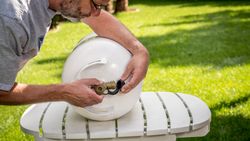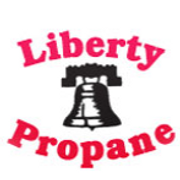
Versatile, clean-burning, and affordable, propane is one of the most energy-efficient resources available. It’s useful for a variety of commercial and household applications, such as heating, cooking, and generating electricity. But like any other type of fuel, it must be handled with care; otherwise, it becomes a safety hazard. Those unaccustomed to using and storing tanks are likely to have questions. Here are the answers to the most common.
What to Know About Propane Tank Care
Where should you store the tank when you’re not using it?
If you have a portable tank, it should always be kept outside in a shaded, well-ventilated area. It should never be left indoors, including your garage. Furthermore, be sure to store it at least 5 feet from any doorway or entrance. Likewise, it should be kept at least 5 feet away from heat sources like grills or a fireplace.
How do you check for leaks?
 At least once every season, you should check for leaks. You can use a leak detector solution or a mixture of liquid dishwashing soap and water. Apply it on the valve connections then slowly open the cylinder valve. If there are bubbles, those connections must be tightened. Repeat the test. If after tightening them bubbles still appear, contact your dealer to have it repaired or replaced.
At least once every season, you should check for leaks. You can use a leak detector solution or a mixture of liquid dishwashing soap and water. Apply it on the valve connections then slowly open the cylinder valve. If there are bubbles, those connections must be tightened. Repeat the test. If after tightening them bubbles still appear, contact your dealer to have it repaired or replaced.
Why is there a hissing sound coming from the tank?
Unless you smell something sulfurous, hissing sounds are usually caused by an opened valve. If you’ve recently had a gas delivery, it could be the bleeder valve, which is also known as a fixed liquid level gauge. Technicians sometimes leave it open a bit after refilling them. Turn it clockwise to close the valve. On the other hand, if it’s a warm day, it could be the relief valve, which is designed to open up to release any pressure that may have built up from the heat. If this is the case, resist the urge to look into the valve, and don't tap it. To minimize the pressure, you can cool it down by spraying it with water, which should close the valve.
What if there’s a sulfurous odor around the tank?
Whether or not there’s a hissing sound, if you smell something like rotten eggs, it’s likely there’s a leak. If you can safely reach your tank, close the cylinder valve clockwise to turn off the flow of gas. Afterward, make an appointment with a propane technician to have the tank inspected. If you can’t reach the tank, leave the vicinity and call the fire department or 911 and inform them you suspect a gas leak.
Whenever you need reliable fuel delivery, repairs, or a replacement system installed, contact Liberty Propane. Based in Hinesville, GA, this family-owned and -operated business is known for their dedicated customer service, reliability, and affordable prices. They even offer 24-hour emergency services. Learn more about their propane services on their website. For a free quote, call them today at (912) 408-3040.
About the Business
Have a question? Ask the experts!
Send your question

